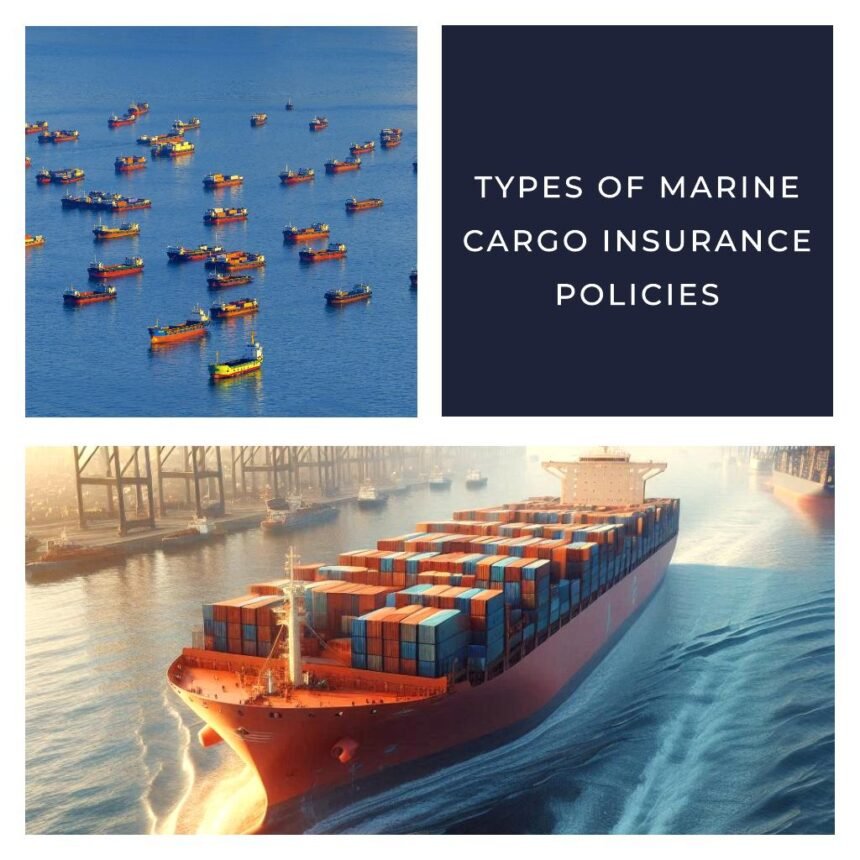Introduction to Marine Cargo Insurance
Marine cargo insurance is an essential component of global trade, providing a safety net for stakeholders involved in the transportation of goods across international waters. Its primary function is to offer protection against the potential loss or damage of cargo while in transit by sea. This form of insurance is crucial for exporters, importers, shippers, and consignees who depend on the safe and timely delivery of their goods. Without marine insurance, the risks associated with maritime transport could lead to significant financial losses, making it a fundamental aspect of international commerce.
The concept of marine cargo insurance dates back to ancient times when merchants and traders sought ways to safeguard their investments during long and perilous sea voyages. The origins of marine insurance can be traced to the Mediterranean region, where early forms of risk management were developed to mitigate the perils of maritime trade. Over the centuries, marine insurance policies have evolved, adapting to the changing dynamics of global trade and advancements in shipping technology. Today, marine insurance policies are comprehensive and cater to a wide range of needs, providing tailored coverage for various types of cargo and shipping conditions.
In the modern international shipping industry, marine cargo insurance plays a pivotal role in ensuring the continuity and reliability of supply chains. It not only offers financial compensation in the event of loss or damage but also instills confidence among trading partners. By securing a marine insurance policy, businesses can manage risks more effectively, allowing them to focus on their core operations and growth. Understanding the different types of marine cargo insurance policies available is crucial for stakeholders to make informed decisions about the level of coverage required for their specific needs.
Types of Marine Cargo Insurance Policies
Marine cargo insurance is critical for safeguarding goods during transportation by sea. Shippers and exporters have several types of marine cargo insurance policies to choose from, each catering to specific needs and circumstances. Understanding the nuances of these policies helps in selecting the most appropriate coverage for varying shipping requirements.
Open Cover Policies: Open cover policies are designed for businesses that engage in frequent shipments over a specified period. These policies provide continuous coverage for all shipments during the policy term, eliminating the need to secure individual insurance for each consignment. This type of marine insurance is ideal for exporters and importers with high shipping volumes, offering convenience and comprehensive protection against risks such as damage, theft, and loss of goods.
Specific Voyage Policies: Unlike open cover policies, specific voyage policies cover individual shipments for a single voyage. This type of marine insurance is suitable for shippers who do not regularly transport goods or those dealing with high-value consignments requiring bespoke coverage. Specific voyage policies offer tailored protection for the duration of the journey, from the point of origin to the destination, ensuring that the goods are covered against potential perils encountered during transit.
Contingency Insurance: Contingency insurance, also known as seller’s interest insurance, is an additional layer of protection for sellers. This policy comes into play when the buyer’s insurance is insufficient or non-existent, ensuring that the seller’s financial interests are safeguarded. Contingency insurance is particularly useful in international trade, where the seller might not have control over the buyer’s insurance arrangements. It provides peace of mind by covering potential losses arising from unforeseen circumstances.
Comparing these marine cargo insurance policies reveals that each type serves distinct purposes. Open cover policies are advantageous for consistent shippers due to their ongoing coverage, while specific voyage policies offer targeted protection for individual shipments. Contingency insurance acts as a safety net for sellers, covering gaps in the buyer’s insurance. By assessing shipping patterns, cargo value, and risk exposure, shippers can determine the most suitable marine insurance policy to ensure optimal protection for their goods.
Factors to Consider When Choosing a Marine Cargo Insurance Policy
When selecting a marine cargo insurance policy, it is imperative to evaluate several critical factors to ensure that your goods are adequately protected throughout their journey. One of the foremost considerations is the nature of the cargo. Different types of goods may require distinct types of marine insurance coverage. For instance, perishable items might need special provisions compared to non-perishable goods due to the higher risk of spoilage during transit.
The value of the goods is another pivotal aspect to consider. It is essential to accurately declare the value to avoid underinsurance, which could lead to significant financial loss in the event of a claim. In contrast, overestimating the value could result in unnecessarily high premiums. Striking a balance is crucial for optimizing the cost-effectiveness of the marine insurance policy.
The chosen shipping route also plays a vital role in determining the appropriate cover. Some routes are more hazardous than others due to factors such as piracy, political instability, or severe weather conditions. Understanding the specific risks associated with the shipping route can help in selecting a policy that mitigates these dangers effectively.
Potential risks involved in the transportation process, such as theft, damage, or loss, should be thoroughly assessed. Different marine cargo insurance policies offer varying degrees of protection against these risks. It is important to ensure that the policy covers the specific risks that are pertinent to your shipment.
Understanding the terms, conditions, and exclusions of the marine insurance policy is crucial. Each policy will have its own set of stipulations, and it is vital to comprehend what is covered and what is not. Being aware of exclusions can help in making necessary adjustments or seeking additional coverage if required.
Lastly, the claims process is a critical consideration. A clear and efficient claims process can significantly ease the stress of dealing with a loss or damage. It is beneficial to choose a provider known for their prompt and fair claims handling. Familiarizing yourself with the required documentation and procedural steps can facilitate a smoother claims experience.
By meticulously evaluating these factors, importers and exporters can make informed decisions that best safeguard their interests, ensuring that their marine cargo insurance policy provides comprehensive protection for their valuable shipments.
Case Studies and Real-World Examples
Understanding how different types of marine cargo insurance policies operate in real-world scenarios can significantly clarify their practical applications. This section delves into several case studies, highlighting both successful claims and common pitfalls to avoid, thus offering a nuanced perspective on marine insurance.
One notable case involved an export company shipping high-value electronics to Europe. The company opted for an “All Risk” marine insurance policy, providing comprehensive cover against almost all risks, except those explicitly excluded. During transit, a severe storm caused significant water damage to the shipment. Thanks to the “All Risk” policy, the company swiftly filed a claim and received full compensation for the damaged goods. This case underscores the importance of choosing extensive coverage when dealing with high-value or delicate cargo.
Conversely, an import company faced challenges when it opted for a “Free of Particular Average” (FPA) policy while importing raw materials from Asia. This type of marine insurance only covers significant losses, typically those exceeding a specified percentage of the shipment’s value. Unfortunately, the shipment suffered partial damage due to improper handling, which did not meet the threshold for a claim under the FPA policy. The company had to bear the loss, highlighting the need for careful consideration of the policy specifics and the nature of the cargo.
Another instructive example involved a business importing perishable goods. They wisely chose a “Perishable Cargo” insurance policy, which provides tailored coverage for items prone to spoilage. During transit, a refrigeration unit malfunctioned, leading to spoilage of a portion of the cargo. The import insurance policy covered the loss, enabling the business to maintain its supply chain without significant financial disruption.
These cases illustrate the importance of aligning the type of marine insurance with the specific risks associated with the cargo. Thoroughly understanding and selecting the appropriate marine insurance policy can safeguard businesses against unforeseen losses, ensuring smooth import and export operations.








